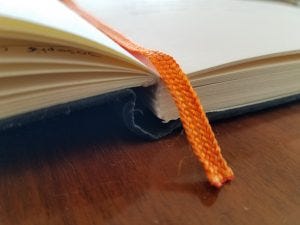Writing Terms and Definitions

There are writing terms out there I never thought existed, and ones I thought I knew but didn't. When I got into writing, none of these things mattered, but now I need a place that is not the corners of my brain to store this information.
I'll update this list as I go, but here are a few writing terms to get started:
Agent
A paid middle-person who can represent a novel to a publisher and negotiate contracts.
ALPHA reader
A reader who sees the manuscript first, in its infancy. They are used to first and second drafts and can sort through the clutter, but it's still best to clean up a little so the mistakes are not distracting.
ARC
Advanced Reader Copy. These are book copies for people to read right before the author or publisher releases said book. In this stage, the author encourages reviews for launch day.
BETA reader
A person who reads a manuscript in its final stages before the author approaches publishers or self-publishes. Unlike ARC readers, these ones offer feedback that will be highly considered in the next edit. Many people confuse them with Alpha readers, and it honestly doesn't matter that much as long as people are up-front about their expectations. See my handy list on how to get and maintain relationships with these readers.
Critique partner
A person to bounce ideas off of and who trades portions or entire manuscripts with the author. This person usually is a writer and will give and take advice.
Editing
There are generally four levels of editing: big picture (developmental and substantive), paragraph level (mechanical and line edit), sentence level (copy edit), and word level (proofread). An editor will not change a manuscript unless that has been specified. He or she will point out the problems and have the author fix them. An editor is not a beta reader.
Cover letter
No more than one page, this letter accompanies a manuscript and introduces the author and the author's credentials.
Hook
This grabs the reader's attention and encourages them to keep reading. A hook happens within the narrative fairly soon.
Log Line
Used in screenplays and adapted to fit novels, this is a one-sentence description of the story.
Narrative
A collection of events told in a particular order.
POV
Point of View.
Vanity publisher/press
Charges a fee for publishing and will often times approach a writer with a hard selling tactic.
Pseudonym
A fictitious name used as the author name. People use these for various reasons; avoiding unwanted attention, and having a clever or marketable name tops most reasons.
Query
A one-page letter pitching an idea or novel to an agent. There is an intro, background on the topic, and a synopsis of writer's credits. A search on "how to write query letters" is a good start for this one. I have not gotten that far!
Self Publish
Skip the middle-man and go right to the print. The author is in charge of all costs including and not limited to printing, ISBN, copyright, marketing, seller fees, etc.. If all goes well, he or she can get a much larger profit margin than in traditional publishing.
Slush Pile
A pile of unsolicited (agent-less) manuscripts received by a publisher or editor.
Synopsis
This is a summary of the story and is told in first person. Check out these tips from the Writer's Digest on writing a synopsis.
Trope
A conceptual figure of speech. Friends become lovers. Enemies become friends. These are things people automatically recognize and anticipate. It's not uncharted ground and can help create a feeling without much work, but can also work toward a great plot twist when expectations are ripped away.
